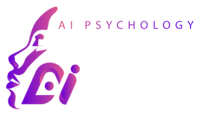AI Psychology Academy: How to Harmonize Yourself in the Age of Algorithms
- Максим Бадзюнь
- Sep 3, 2025
- 3 min read

At the start of the revolution — why the Academy emerged
In the 2020s, the development of artificial intelligence has become lightning fast. Chatbots, recommendation feeds, and virtual assistants have made it possible to automate routines and speed up work, but they also have another side - information overload. Neuropsychologists note that automatic thoughts arise instantly and strongly affect our mood and behavior. If you do not control your own states, it is difficult to distinguish useful tools from harmful habits. It is at this intersection - between technological progress and mental well-being - that the Academy of AI Psychology works.
Who we are and what we offer
The Academy was founded by Maksym Badzyun , a certified psychologist and AI futurologist. The project's mission is simple: to translate the language of algorithms into human language and provide tools that help Ukrainians live more calmly, simply, and with better quality . A team of experts creates content and practices every day that help adapt to neuro-rapid changes:
Micro-practices (1–7 min) against stress, apathy, and chronic fatigue. By performing short breathing or concentration exercises, a person learns to notice and control their automatic reactions. Studies show that being aware of your thoughts helps reduce anxiety.
Sleep and digital detox protocols. Scientific studies show that interrupting continuous use of gadgets and maintaining a sleep schedule reduces stress and anxiety. Our protocols are based on recommendations from psychologists and include practical advice on establishing a “tech diet.”
AI guides and prompts without water. We take a detailed look at how to use ChatGPT, Midjourney, or Copilot in a way that adds productivity, not time. Each guide includes ready-made prompts for tasks — from writing letters to creating study plans.
Scientific facts about the brain and nervous system. The team translates complex neuroscience papers into understandable language and regularly updates the blog with new materials. Each article contains practical advice and links to sources.
Daily rubrics and learning format Academy of Psychology AI
Academy content is available in a variety of formats to support different learning styles and learning styles:
Heading | Description | Accessibility |
Every evening at 10:00 PM, the team sends 5–9 top news stories from the world of AI, innovation, and neuroscience. | Telegram, email | |
In-depth materials on the Academy blog: from neuroanatomy to analysis of popular AI tools. | Website, blog | |
Short AI-generated videos that demonstrate practices or explain scientific concepts. | YouTube, TikTok | |
Ready-made instructions for ChatGPT that save time in work and learning. | Telegram | |
Practical programs: Anti-Stress Intensive and Digital Detox . They combine videos, text tasks, and Telegram bot support. | Online | |
Micro-practices for motivation, focus, and deep sleep that take 1–7 minutes. | Telegram, Instagram |
Our courses
Anti-stress intensive
This course is aimed at people experiencing chronic fatigue, insomnia, and low motivation. Over three days, participants will learn:
Identify automatic thoughts and transform them. Psychologists advise recognizing destructive thoughts in time, as they are “born instantly” and can distort perception.
Learn relaxation techniques. The course includes breathing exercises, visualization, and progressive muscle relaxation.
Harmonize your sleep. A proper sleep schedule helps reduce cortisol levels and improve cognitive function.
Digital detox
The seven-module program helps you develop healthy gadget habits. You will learn:
Identify triggers for online addiction (social media, news, push notification feed).
Set “digital boundaries.” This could be fixed hours without screens or turning off notifications during work hours.
Support the nervous system through physical and creative practices.
Why it works
The approach is based on science. All practices and tips are based on psychological and neuroscientific research. It has been proven that awareness of automatic reactions helps to better manage emotions.
Learning flexibility. Videos, texts, and a Telegram bot allow you to fit the course into any schedule.
Community support. The Telegram channel brings together like-minded people where you can ask questions and share experiences.
Resources and channels
The Academy is actively present in various media:
Website : ai-psychology.academy — detailed description of programs, blog, and course registration form.
Blog : In-depth content on mental health, feedback on AI tools, and success stories.
YouTube : long discussions on topics (depression and AI, the future of the brain in the digital age).
TikTok : 15–30-second first aid practices.
Instagram : behind-the-scenes stories, advice from psychologists.
Conclusion: Living in an AI world while remaining yourself
Artificial intelligence is not only neural networks and algorithms, but also a challenge to our psyche. Information flows are accelerating, and the nervous system often does not have time to adapt. The Academy of AI Psychology helps balance these processes by combining science, practice, and technology.
Our goal is for every Ukrainian, regardless of age or profession, to have access to simple and effective self-regulation tools. Technologies are changing the world, but it depends only on the person whether they will become a source of stress or a resource for development.




Comments